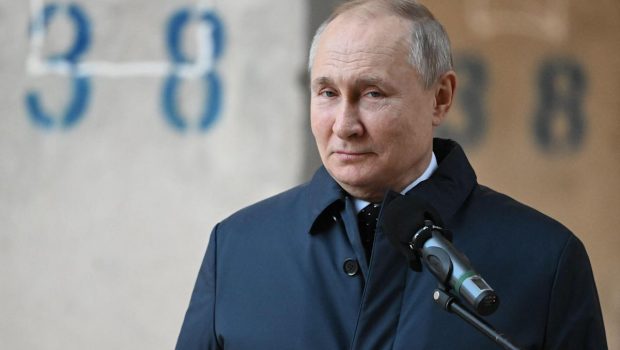Vladimir Putin’s office is relying on technology he stifled for years to bypass the sanctions he brought on Russia
Russian President Vladimir Putin has been trying to eradicate virtual private networks, or VPNs, in the country for years, but his administration is apparently making an exemption because of the war in Ukraine.
Dmitry Peskov, a Kremlin spokesperson, said in an interview with the Belarus-1 TV channel on Saturday that he uses VPN technology because “it’s not banned,” according to a translation of the interview cited by Insider.
“You have installed VPN”- tells journalist to Peskov. “Yeah it’s not banned”, answers Peskov. pic.twitter.com/6IOdbnAADA
— Ani Chkhikvadze (@achkhikvadze) April 2, 2022
Peskov did not reveal which VPN he uses, or elaborate on what he was using the VPN to access.
People can covertly access websites by using VPNs, which reroute and encrypt, or scrambles, their Internet traffic to a remote server that acts as a middleman and ultimately funnels the users to the sites they wish to visit undetected.
That has become increasingly important to Russians over the past few weeks, as numerous sanctions against the country have resulted in multiple technology firms like Google-parent Alphabet and Apple cutting off access to certain services and halting sales there. The inability to access various Internet services has severely impacted Russia, particularly its tech industry; an estimated 70,000 tech workers have fled Russia to other countries because they could not access the services they needed for their jobs.
The people who remain in Russia—apparently including those working for Putin—can use VPNs to access the sites they wouldn't be able to otherwise.
But the Kremlin has sought to block the use of VPNs in the country for years, in an effort to control information sources that the Russian public can access, analysts believe. Russia has maintained that some of the VPNs it has previously blocked allowed people to access illegal sites related to extremism and child pornography.
It has also imposed its own bans on Internet services like Twitter and Facebook that the Kremlin believes are distributing news and information that counter the government’s narrative of the war.
But the Russian government has faced challenges cracking down on VPNs, and keeping up with newer operators that subtly modifying their software to evade blocking attempts.
Yegor Sak, the CEO of VPN firm Windscribe, recently told Fortune that his company is experiencing a massive amount of Internet traffic coming from Russia over the past month.
“A lot of Russians are jumping in on the VPN train to get access to content that's deemed fake in the country, meaning all the news that we [outside Russia] take for granted,” Sak says.
This story was originally featured on Fortune.com








Gloss